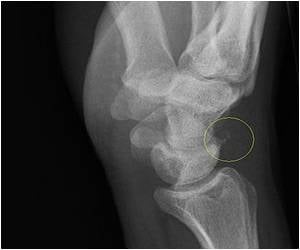A new study published online in the journal Radiology suggests that surgery is not always necessary for women with a type of breast tissue abnormality associated with a higher risk of cancer.

Atypical lobular hyperplasia (ALH) and lobular carcinoma in situ (LCIS) are abnormal breast lesions that occasionally appear as incidental findings in breast biopsies. Women with ALH or LCIS have a four to 10 times higher risk of developing breast cancer, according to Michael A. Cohen, M.D., FACR, professor of radiology at the Emory University School of Medicine in Atlanta. As a result, it is often recommended that ALH and LCIS diagnosed on image-guided core biopsy be removed surgically.
"Because of the possibility of upgrade to cancer, the bulk of the published literature says that the prudent thing to do is excise ALH and LCIS," Dr. Cohen said.
But new research from Dr. Cohen, Kristen Atkins, M.D., and colleagues may alter that thinking.
Dr. Atkins is a pathologist and associate professor at the University of Virginia in Charlottesville, Va. At one time, Drs. Cohen and Atkins were colleagues there and had many discussions about balancing the risk of cancer in ALH and LCIS patients with the costs and potential complications of surgery.
"From a pathology perspective, ALH and LCIS are often very tiny lesions, so we wondered why they were getting excised," Dr. Atkins said. "These surgeries may involve general anesthesia and possible disfigurement."
Advertisement
The research yielded 50 cases from 49 women aged 40 to 73 years. Radiologist and pathologist findings were concordant in 43 of the 50 cases. None of the benign concordant cases were subsequently upgraded to cancer, strongly suggesting that observation in these patients would have been a viable alternative to surgery. Of the seven discordant cases, two were upgraded to ductal carcinoma in situ, or DCIS, an early-stage, noninvasive form of breast cancer.
Advertisement
"When there's no discordance between the radiologist and pathologist after thorough radiology-pathology correlation, there's no upgrade from ALH or LCIS to cancer in our study," Dr. Cohen said. "These findings show that some women can avoid surgery, and that yearly mammograms along with MRI or ultrasound as second-line screening tools may suffice."
The researchers suggested that their findings will help physicians and patients make informed decisions about ALH and LCIS.
Source-Eurekalert














